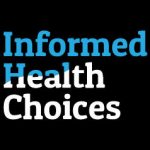
Informed Health Choices Podcasts
Each episode includes a short story with an example of a treatment claim and a simple explanation of a Key Concept used to assess that claim
| 1 Comment | Evaluated
Ebm@school – a curriculum of critical health literacy for secondary school students
A curriculum based on the concept of evidence-based medicine, which consists of six modules.
| 0 Comments | Evaluated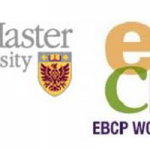
McMaster Evidence-Based Clinical Practice Workshop Resources – Therapy module
McMaster Evidence-Based Clinical Practice Workshop – Therapy module.
| 0 Comments
McMaster Evidence-Based Clinical Practice Workshop Resources – Systematic review module
McMaster Evidence-Based Clinical Practice Workshop – Systematic review module.
| 0 Comments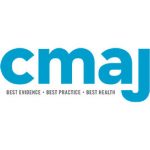
Basic statistics for clinicians: 3. Assessing the effects of treatment: measures of association
Assessing the effects of treatment: measures of association.
| 0 Comments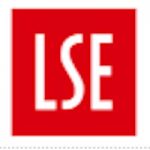
What Evidence in Evidence-Based Medicine?
Philosopher John Worral’s reflections on the evidence used in Evidence-Based Medicine.
| 0 Comments
You Can’t Trust What you read about nutrition
Beware of misleading correlations between foods and chance associations with other factors.
| 0 Comments
Association is not the same as causation. Let’s say that again: association is not the same as causation!
This article explains how to tell when correlation or association has been confused with causation.
| 0 Comments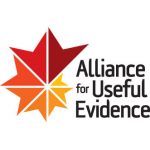
Using research evidence: a practice guide
NESTA’s guide to using research evidence to inform decisions in policy and practice.
| 0 Comments
Policy: twenty tips for interpreting scientific claims
This list will help non-scientists to interrogate advisers and to grasp the limitations of evidence.
| 0 Comments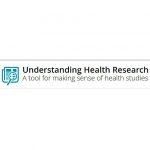
Understanding Health Research, a tool for making sense of health studies: Confounders
A confounder (or 'confounding factor') is something, other than the thing being studied, that could be causing the results seen in a study.
| 0 Comments
Understanding Health Research: Correlation and Causation
A discussion of the difference between correlation and causation.
| 0 Comments
Understanding Health Research: A tool for making sense of health studies
An interactive online tool designed to help anybody to understand scientific health research evidence.
| 0 Comments
Reading the Medical literature
American College of Obstetricians and Gynaecologists (ACOG) introduction to critical appraisal and evidence-based medicine.
| 0 Comments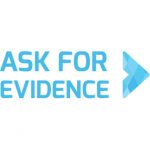
Randomised controlled trials (RCTs)
‘Ask for Evidence’ introduction to the concept of a randomised comparison.
| 0 Comments
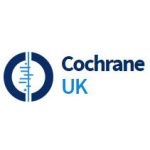
Evidence for everyday health choices
A 17-min slide cast by Lynda Ware, on the history of EBM, what Cochrane is, and how to understand the real evidence behind the headlines.
| 0 Comments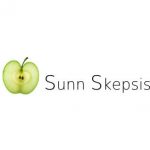
Sunn Skepsis
Denne portalen er ment å gi deg som pasient råd om kvalitetskriterier for helseinformasjon og tilgang til forskningsbasert informasjon.
| 0 Comments
Dancing statistics: correlation
A 4-minute film demonstrating the statistical concept of correlation through dance.
| 0 Comments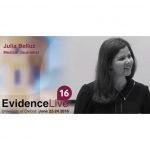
Julia Belluz – Lessons from the trenches of evidence-based health journalism at Vox.com
20-minute talk by Julia Belluz on the need to bring the cultures of health journalism and EBM together.
| 0 Comments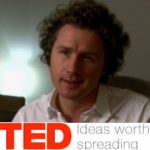

Calling Bullshit Syllabus
Carl Bergstrom's and Jevin West's nice syllabus for 'Calling Bullshit'.
| 0 Comments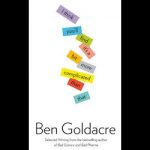
All bow before the mighty power of the nocebo effect
Ben Goldacre discusses nocebo effects, through which unpleasant symptoms are induced by negative expectations, despite no physical cause.
| 0 Comments
Detectives in the classroom
Five modules of materials for promoting epidemiology among high school students.
| 0 Comments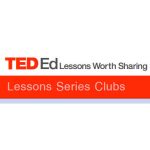
Not all scientific studies are created equally
David Schwartz dissects two types of studies that scientists use, illuminating why you should always approach claims with a critical eye.
| 1 Comment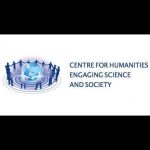
Making the most of the evidence in education
A pamphlet to guide people using research evidence when deliberating about educational policies.
| 0 Comments
Randomized Control Trials
1/2, 40-min lecture on randomized trials by Dr R Ramakrishnan (Lecture 25) for the Central Coordinated Bioethics Programme in India.
| 0 Comments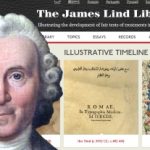
Why treatment comparisons are essential
Formal comparisons are required to assess treatment effects and to take account of the natural course of health problems.
| 0 Comments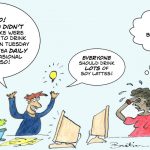
Soy Lattes
Just because two things are associated, doesn't mean one thing caused the other.
| 0 Comments
Cause and Effect
Just because two things are associated, doesn't mean one thing caused the other.
| 0 Comments
Observational Studies – does the language fit the evidence?
A webpage explaining observational studies and their advantage and disadvantages.
| 0 Comments
Smart Health Choices: making sense of health advice
The Smart Health Choices e-book explains how to make informed health decisions.
| 0 Comments
Can measurements show if a treatment works?
An article discussing errors to avoid when testing treatments.
| 0 Comments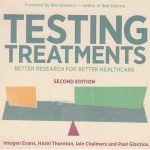
บทที่ 1 ใหม่กว่าแล้วดีกว่าไหม
ประเด็นสำคัญ การตรวจสอบวิธีเป็นเรื่องจำเป็น เพราะวิธีการรักษาใหม่มีโอกาสพอๆ กันที่จะแย่กว่า หรือดีกว่าวิธีการรักษาที่ใช้กันอยู่ การตรวจสอบวิธีการรักษาที่ (ไม่เที่ยงธรรม) อาจทำให้ผู้ป่วยทุกข์ทรมานและเสียชีวิต วิธีการรักษาที่อนุมัติให้ใช้แล้วก็ใช่ว่าปลอดภัยเสมอไป ต้องใช้เวลาระยะหนึ่งกว่าอาการข้างเคียงจากวิธีการรักษาจะปรากฏ จากวิธีการรักษามักถูกเน้นเกินจริง ขณะที่มักถูกกลบเกลื่อน ทำไมต้องมีการตรวจสอบวิธีการรักษาอย่างเที่ยงธรรม หากขาดการประเมินอย่างเที่ยงธรรม…คือไม่ลำเอียง…ก็อาจมีการสั่งใช้วิธีการรักษาที่ไม่ได้ผลหรือกระทั่งเป็นโทษเพราะนึกว่ามีประโยชน์ หรือตรงข้าม การรักษาที่ได้ผลก็อาจถูกละเลยเพราะมองว่าไม่มีประโยชน์ จึงควรตรวจสอบอย่างเที่ยงธรรมกับวิธีการรักษาทุกวิธี โดยไม่ต้องสนใจว่ามันมีที่มาอย่างไร หรือเป็นวิธีมาตรฐานหรือวิธีเสริม/ทางเลือกหรือไม่ ไม่ควรเชื่อทฤษฎีเกี่ยวกับผลของวิธีการรักษาที่ยังไม่ได้ตรวจสอบ […]
| 0 Comments
เข้าใจผิดว่าอะไรคือสิ่งที่รักษา
“เขายืนกรานกันว่ามีหลักฐานว่ายาสูบแก้โรคน้ำหนีบได้ในนักดำน้ำและผู้คนมากหลาย ทั้งยังมิเป็นอันตรายต่อผู้ใด ความเห็นดังนี้ นอกจากจะสำคัญผิดใหญ่หลวง ยังหาสาระมิได้ ผู้ป่วยใช้ยาสูบยาม อาการทรุดหนัก กาลต่อมาความป่วยไข้ก็บรรเทาลงตามธรรมชาติ ผู้นั้นจึงหายดี จึงเห็นว่าเช่นนั้นแล้ว เป็นยาสูบแน่ที่สร้างปาฏิหาริย์” James Stuart, King of Great Britaine, France and Ireland. […]
| 0 Comments
ประโยชน์ของการมองโลกแง่ดีและความคาดหวัง
ปัจจุบันเราเข้าใจชัดขึ้นเกี่ยวกับเหตุผลด้านจิตวิทยาที่ทำให้คนเราโยงว่าอาการของตนกระเตื้องขึ้นเพราะวิธีการรักษาที่ได้รับ ทุกคนมักจะทึกทักว่าถ้าสองเหตุการณ์เกิดขึ้นต่อเนื่องกัน เหตุการณ์แรกอาจเป็น เหตุให้เกิดเหตุการณ์ที่สอง เราจะเริ่มพบแบบแผนซึ่งไม่มีอยู่จริง อันเป็นปรากฏการณ์ที่พบได้บ่อยในหลากหลายสาขา เช่น การโยนเหรียญ ราคาหุ้น และการโยนลูกบาสเกตบอลลงห่วง ทั้งยังมีแนวโน้มจะมีปัญหาที่เรียกว่าความลำเอียงเพื่อยืนยันความคิดตัวเอง (confirmation bias) คือเราจะมองเห็นแต่สิ่งที่คิดว่าจะเห็น หรือ “เห็นในสิ่งที่เชื่อ” การพบสิ่งที่ยืนยันความเชื่อจะเสริมความมั่นใจว่าเราคิดถูก ตรงกันข้าม เราอาจไม่รับรู้ หรือไม่ยอมรับข้อมูลที่ขัดกับความคิดของเรา […]
| 2 Comments
ทำไมต้องมีการตรวจสอบวิธีการรักษาอย่างเที่ยงธรรม
ธรรมชาติคือผู้เยียวยา ปัญหาสุขภาพหลายอย่างมีแนวโน้มจะทรุดลงหากไม่ได้รับการรักษา ซ้ำบ้างยังทรุดลงแม้รักษาแล้ว ทว่าบ้างก็ทุเลาได้เอง คือ “รักษาตัวเองได้” ดังที่นักวิจัยผู้มีส่วนในการตรวจสอบวิธีการรักษาที่เสนอให้ใช้กับไข้หวัดกล่าวว่า “หากรักษาอย่างแข็งขันไข้หวัดจะหายใน 7 วัน แต่ถ้าปล่อยไว้อย่างนั้นจะหายใน 1 สัปดาห์” [1] ถ้าจะให้เจ็บแสบกว่านั้น “ธรรมชาติรักษาแต่แพทย์เก็บค่ารักษา” และอันที่จริงการรักษาอาจยิ่งเป็นการซ้ำเติม เนื่องจากคนเรามักหายป่วยได้โดยไม่ต้องรักษา เมื่อตรวจสอบวิธีการรักษาจึงต้องคำนึงถึงวงจร “ธรรมชาติ” […]
| 2 CommentsNo Resources Found
Try clearing your filters or selecting different ones.
